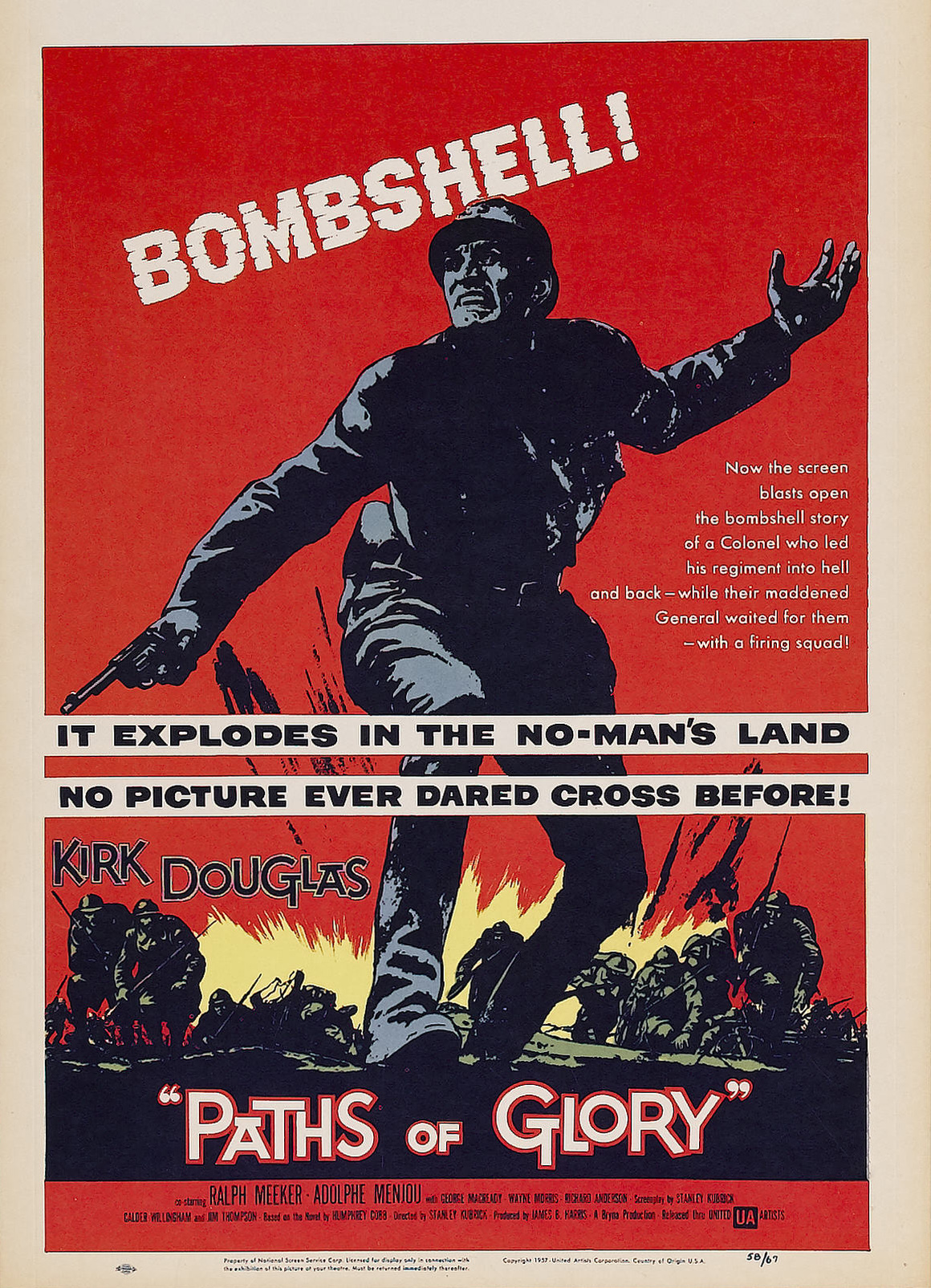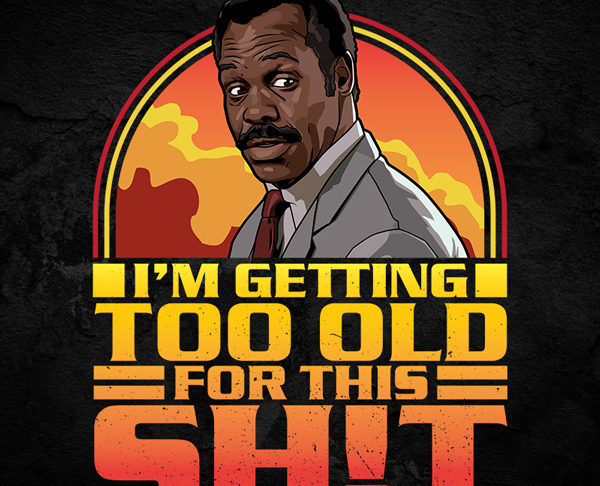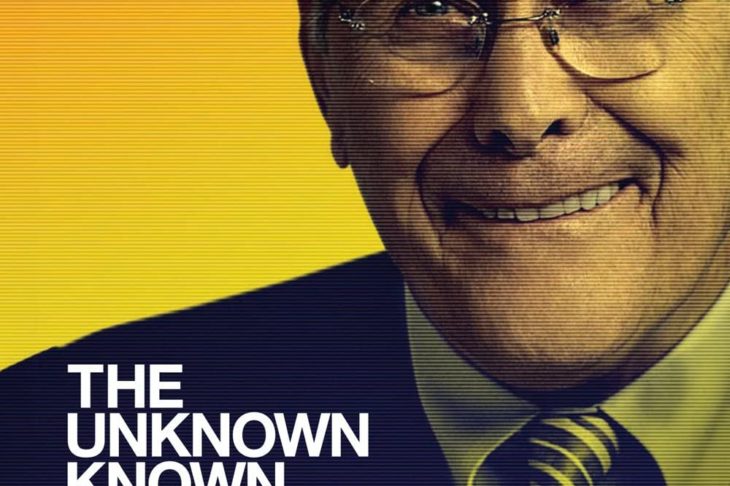
Paths of Glory: Kubrick’s Anti-War Lessons on Leadership
Written by: Pred
Published: 22 October 2022
Sometimes there are those military movies that come out of the woodwork that you can not believe is more commonly known or researched. These movies are such a perfect gift for those seeking the knowledge to simply improve themselves. Additionally, they provide a critique of military culture, both the positives and the negatives, and also obliterate the common public perception of how military culture operates. These movies usually are not as sexy as those box office blockbusters, but hey sometimes the not so popular things are better for you. Paths of Glory.
Paths of Glory is one of those movies that somehow has been hidden through the years; perhaps the anti-war message is why so. Military members at all levels should research and fully appreciate both the logical and emotional dimensions of leadership and followership. Unfortunately this movie is not one of those movies military education schools would put on its syllabus, again because of its anti-war message. Paths of Glory is a must for those seeking an understanding of where ego meets morality in war. It reminds the watcher how one must always have the personal courage to do whatever is right when presented with situations that require personal courage.
Paths of Glory movie trailer (1957)
Paths of Glory is a 1957 Stanley Kubrick film set in the 1916 French trenches of the World War I Western Front. Kirk Douglas stars as Colonel Dax who is a successful regimental commander of the 701st with whom the men trust and follow to multiple successes. These successes though are not measured in strategic objectives, but capturing and holding only meters at a time. Dax, caught in a larger political and ego driven drama between French generals, reacts with full honorable intentions when presented with a military plan that will doom up to a third of his command. His instructions are to capture a formation ironically called the “Ant Hill” located in front of his lines and the Germans have properly fortified fro stop any attack. When presented with his orders, Col Dax clearly understands what will be needed to secure the “Ant Hill”, keep in French hands, and knows the plans for attack will not meet the operational goals. The fortified position can clearly not be captured no matter what the resources, both personnel and weaponry, are thrown at the location. His commanding general calmly reaffirms Col Dax that even with losing more than half of his regiment, the objectives will be met. No big deal. Translated: You have to break some eggs to make an omelet.
What Col Dax does not know is that behind the scenes, the French General Staff and his chain of command have their own political and personal agendas for their career advancement. Dax’s Commander makes the same statements to his own leadership and questions the attack’s ability to to be successful. Dax’s commander is eventually persuaded with promises of a promotion and additional respect and power. The scene is a master class in manipulation and motivating one’s egocentric priorities and goals to further a mission. In several moments, one can literally observe a French general change from a protector of his troops questioning the validity of the attack to a person convinced nothing will stop the attack.
And as you have guessed, the attack is launched with Col Dax leading from the front to no avail. The attack is a failure as the first wave is wiped out and requiring the second wave but it remained in their trenches refusing to move forward. Colonel Dax’s impatient commander angry at the failed attack and seeing his promotion fading away, even orders his own artillery to fire at the trenches with his own troops to motivate them to move forward. If it were not for the tragicness with the deaths of hundreds, his response to the failed leadership would be comedic.
The attack fails and in typical fashion of toxic leadership, the hunt and subsequent punishment for soldiers’ cowardliness begins. The remaining portion of the movie follows the court martial of three soldiers who were picked at random to suffer the punishments of the entire 701st Regiment. Col Dax, who was a lawyer prior to the war, defends them through the show trial and their eventual death by firing squad. Kubrick amazingly creates an execution scene with three railroaded soldiers responding to their fate in three different ways.
Kubrick made a truly great anti-war movie here in typical Kubrick fashion. As Dr. Strangelove was a tremendously well crafted satire of military culture and thinking, Paths of Glory is a well developed anti-war movie made during the Eisenhower 1950s. In fact, the movie has clear messages to the viewer on the price of war. For those of us in the military the message is clear: the tough decisions a military leader will have to make when it is not to their advantage. Honorable leaders do what is correct when it is not popular nor advantageous to one’s life or career.
At the beginning of the charge, Col Dax is the first out of the trench blowing the whistle and leading the charge. He was absolutely an easy target for snipers. At the end of the movie as the French General offers him a promotion and a deal similar that was offered to his now vanquished supervisor, he says no. Col Dax realizes that the job is not about how one wins the political battles by just ensuring the personnel you lead survive. One can still survive and fight another day ensuring toxic leadership has someone to challenge them. At the end of the movie, Col Dax survived the political games and is available to support his folks the next day. The General is boggled at Dax’s decision and calls him an idealist in his rejection of the job.
Meanwhile, the Generals are eating large gourmet food portions in luxurious quarters. Disconnected leadership lost in their own political ambitions; generals walk the trenches in pristine uniforms cheering on their shell-shocked troops awaiting their future in the run through No Man’s Land. The hubris of these leaders demonstrates a complete unmoored reality the troops in the field experience. Leaders can not make the appropriate decisions for those in the field if they do not understand the reality or context in which operations are being conducted. These poor decisions will lead to additional failure and thus more detrimental impacts for the unit and the individual soldier. One does not need to go overboard with understanding the challenges in the field, but leaders must at least be familiar and balance risk against mission success.
This is what those being lead want to see: leaders who can balance risk to mission and people correctly. People will make sacrifices and move mountains, but they will only do so if they believe their leaders have “skin in the game.” A leader is the advocate of the people they lead at all times even when the orders include having the troops killed during operations. Col Dax may make some mistakes, but overall the character is a great example of a leader as he has as much to lose as those around him.
This sounds like such common sense, but there continues to be headlines with commanders being relieved of command due to toxic leadership or command environment. How though can this still be so common? Perhaps the military culture and the chain of command with all the pomp and circumstance feeds the egos of our leaders. This is what Kubrick does well in his movies is having the person pull conclusions from the visuals in the movie. Paths of Glory does well on many levels not only as a cinematic art form, but also as a case study in leadership.
The Critical Drinker provides his insight into and recommends Paths of Glory.
Fun Fact… the movie was filmed in Bavaria, Germany and includes over 600 German police officers playing French soldiers. That is irony folks.
Paths of Glory is a must watch for those in military to understand how personal courage is the foundation of leadership. The cinematic experience knowing this is a Kubrick movie is the icing on the leadership cake.


